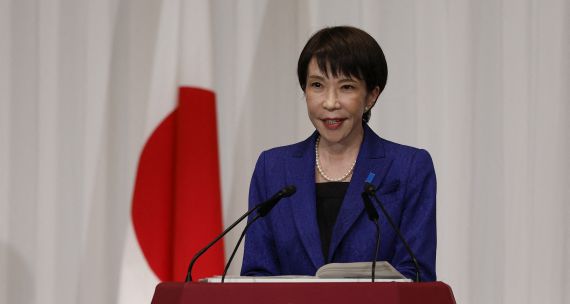Today, government stewardship is at a crossroads. Coming out of the pandemic, the world is turbulent, uncertain, and in many aspects, unprecedented. There is a “new normal” that requires different approaches—and urgency—to set a successful path forward for Canada. Our suggested approach is focused on strategies to promote economic growth, technology, and international collaboration: areas where we both once had leadership roles in the Government of Canada.
As interest rates and debt increase, Canada faces the end of easy fiscal and monetary stimulus without commonly agreed guideposts. Inflation is persistent. Protectionism and Buy America are on the rise. Emerging technologies and global supply chains are being assessed in terms of democratic versus autocratic alliances, with China and the United States openly competing to dominate.
Experience with COVID has taught the value of preparedness, yet looming is the spectre of new pandemics, extreme weather events, and threats to health and food security. Climate change keeps demonstrating to all that we need action, not talk. But this can only happen effectively with common approaches across governments and nations. Perhaps above all, Canada has a growth problem with forecasts showing the country at the bottom rank for the next three decades among developed countries in terms of growth in GDP per capita. This portends falling standards of living for Canadians.
In this age of turbulence, governments must act as catalysts for change and provide direction for the citizens they serve. But the capacity of governments and their public servants to deliver and frame new programs and services has become more difficult, despite initial success in response to COVID. Digital and data-driven practices, powerful new tools honed during the pandemic, still add new pressures in delivery, including for traditional core health and social services, which are already under immense pressure.
These domestic challenges are real and compounded by the geopolitical uncertainties created by the war in Ukraine and tensions in the Taiwan Strait. As former public servants, we understand the value of strategic approaches for dealing with uncertainty based on understandable and actionable principles that can withstand changes in governments. From experience, we offer the following operational principles as a guide to moving forward in the new normal.
First, today’s geopolitics requires a shift to identification of national interests and new regional relationships that favour the protection of our supply chains and the control of new technologies. Canada cannot be all things in this regard, with a focus needed on areas of niche advantage. We can build on our advantages in natural resources, such as agriculture and mining, as well as leadership in areas of new technologies such as artificial intelligence (AI), quantum, synthetic biology, and clean tech. Scale is a factor, with more global Canadian companies needed to consolidate Canada’s leadership. While democratic alliances are important, it is not as simple as supporting the United States. Implementation of an effective Indo-Pacific strategy that places a premium on incenting collaboration and engagement with like-minded partners should be the priority.
Second, in the current context of global protectionism, Canada must continue to build on its tradition of supporting multilateral institutions and free trade through trade negotiations and deals such as the Canada-European Union Comprehensive Economic and Trade Agreement and the Comprehensive and Progressive Agreement for Trans-Pacific Partnership. And yet, the country needs to be more hard-nosed about building and protecting its own supply chains and commercial leadership. This includes fewer provincial barriers, mutual recognition of professional standards, and a more efficient internal market. This also involves more effective management of intellectual property (IP) by firms and governments to keep technological benefits in Canada, as well as the promotion of international standards aligned with our own leading Canadian technologies.
Third, governments and their public servants need to be agile collaborators, looking beyond departments with a “whole-of-government” perspective. This approach represents the best way to identify solutions in the new normal, with collaborative partnerships across governments to businesses and civil society. This is especially true for addressing complex issues like climate change and more diversified trade. Business leads. Governments enable. Civil society is the conscience. The performance of public servants must be rewarded, above all, for their ability to collaborate, share information, integrate different thinking, reach out to Canadians, and drive initiatives that advance large-scale outcomes. While in our past we have observed good work of this kind, too often it is easiest to look inwardly to silos that can be directly controlled and managed, but ultimately cause different departments, levels of government, and others to bicker.
Fourth, governments must better balance the country’s short- and long-term objectives. Too often, we see reactive policies being the norm, often without full consideration of long-term implications. In a global crisis like the pandemic, being reactive is completely understandable, but now Canada needs short- and long-term policies for growth, well-being, and sustainability. Nowhere is this need more evident than in addressing Canada’s growth problem. Improving productivity growth remains an elusive priority. There are many aspects of productivity, but three areas of improvement are staring Canada in the face: regulatory reform so projects can be built quickly and safely; better identification and delivery of strategic digital and physical infrastructure; and more effective government-business collaborative sectoral planning with an eye to achieving global competitiveness and more exports.
Underpinning all four principles is the role of talent in Canada’s economy and society. Our country has a good track record, but now more than ever it’s about ensuring technologies and policies benefit all Canadians equally. This involves winning the global competition for attracting skilled immigrants and supporting new Canadians to enter all job markets. It is about maintaining and up-skilling the country’s labour force as new technologies and practices change the workplace. The importance of leveraging the diversity and inclusion of Indigenous and women entrepreneurs in the workplace cannot be ignored.
There are already examples of the application of these operational principles. The Global Partnership on AI is one of the best. It supports cutting-edge research, applied AI activities, and implementation of ethical AI standards internationally. It encourages the development of new Canadian IP and global standards. All provincial governments have played an important role in support of Canada’s AI leadership, especially Quebec, Ontario, and Alberta with their national AI institutes that are attracting and keeping talent in Canada. New AI firms are emerging in this country with global niche applications in sectors like digital health and agriculture, where Canada is seen as a leader.
Canada needs more initiatives that fully align domestic technology investments and international opportunities. Governments can catalyze domestic and international collaborations. They can encourage and protect the development of new IP and standards that benefit Canada by promoting scale for Canadian firms.
We know Canadian governments and public servants can step up with high-level stewardship as Canada moves forward. We have seen them in action in the financial crisis of 2008 and more recently in the face of the COVID pandemic. We are confident they can meet the current challenge and succeed.
This piece was first published by The Hill Times on April 3, 2023.






